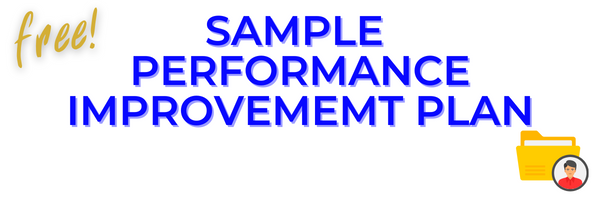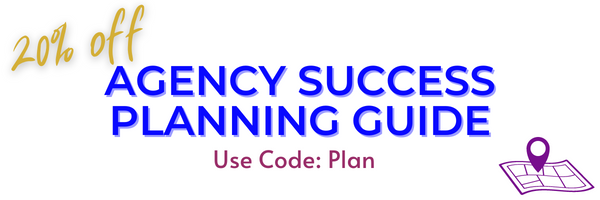A ridiculously amazing agency starts with a strong leadership team. A great team leader is one that can take a step back, look at problems from the outside, utilize the resources available to find a solution, and is an ambassador of the agency’s culture. As a manager just starting with the agency, you should take the time to talk to the leadership team and find out what sets the agency apart from the competition.
It could be that your agency donates to a local organization for every referral sent to them or that they love being involved in local events. Pinpointing what sets the agency apart from the competition can help you visualize your journey as a leader. What is the agency’s mission statement, and what are its values? Memorize and use these in daily interactions with the team and your clients.


Aside from learning the agency’s culture, there are a few other challenges that most new managers face.
The first challenge can come from being promoted from within. When you are promoted from team member to leader, it can take time for the team to buy in. The way that they treat you might change overnight. Do not take this personally.
Often when someone is promoted from within, that person wants to remain “friends” with the other team members. Change can be challenging for everyone. Existing team members may not feel like they can talk as freely with you as they did before. They may also not have the same faith in your abilities as the leadership team.
Talking with people promoted from within is one of their most significant personal struggles. You must remain positive and keep calm. You were announced for a reason. Remember, respect is earned, and through accountability and consistency, you will gain more respect. Communicate often and with purpose.
The second challenge comes from starting too strong. You do not want to be the bull in the china shop. Many new leaders want to prove themselves quickly and have an idea of what needs to happen and a vision of where the team needs to change. They are motivated to get things moving in the right direction to prove to the leadership team that they have what it takes to be a great manager.
While this doesn’t have to be bad, it can overwhelm the team you are taking over. Slow and steady wins the race. Write down everything you would like to see changed, prioritize it and then break the top priority into smaller steps. You cannot change the agency overnight. Commit to consistent improvement.
The third challenge comes from a lack of experience. You may not always know what to do. Being a leader is still a new experience for you. Others will rely on you to help solve problems and deal with messy situations.
They will also be learning how to manage an insurance agency team and approach situations and what the company’s expectations are by watching how you are doing things. Lead by example. Rather than guess if you are doing something correctly, build a team of advisors. It could be a senior employee, the leadership team, another lead from a different department, or a mentor from somewhere else in the industry. Take the time to read blogs, watch videos, ask questions, and lead by example. All effective leaders are always learning.
”We’ve all heard that everything rises or falls on leadership. Suppose you are the leader of your agency. In that case, you are responsible for casting and pursuing the vision, goals, strategies, skill training efforts, and accountability measures needed to pursue agency health and growth relentlessly.” KDP
Build Rapport with Staff
Take the time to get to know each person and their personality. What makes them tick, their learning style, what do they enjoy about their job, and what do they like the least? Do they have any hobbies?
Just like it is important to build a good rapport with a client, you must do the same with your team. Ask questions and show genuine interest. It should be more about them and less about you. Regularly scheduled Coffee Chats or One on Ones are a great starting point. Set aside 15-30 minutes 2 times a month to meet with each person. Create an agenda that includes any items you would like to review, and then have them add items to the agenda they would like to discuss.

Practice Patience
Learning is hard. Everyone on the team learns differently. Many agencies also struggle with consistent processes and procedures. Take the time to learn the right way to do the task, document it, and help the rest of the team learn it.
While some may do well with written directions, others may do better with video or by being hands-on. By working with each individual in the way that they learn the best, you will get better results in less time. Tasks need to be replicable and efficient.
Do not be afraid to ask someone else on the team for help. If you have a strong team member in a specific task, have them make the video or guide and then present it to the team during a training meeting. You can’t do it all, nor should you try to.
Expectations VS. Vision
It is always good to have a vision of where the team needs to be, but it is essential to be flexible. Think outside the box to find ways that the vision can be completed. Benchmark where the team is now and where you would like them to be.
Set small goals and build on success. You might need to bend and weave to successfully lead the team to where they need to be. Set your expectations high, but keep the vision clear.
Listen to Listen, then Listen to Solve. When you take the time to listen to what your teammate is saying, you can get a feel for what they are saying. Sometimes when someone is frustrated or struggling with something, they can make the problem seem minimal, or they might get loud or mad.
Listen to their words and ask probing questions. Then respond with possible solutions. Set an action plan outlining the steps needed to solve the problem.
Prioritize Your Day
Evaluate the tasks that take the most time and then prioritize them. If you have the ability to offload some service tasks, do it! New leaders feel the need to be “busy,” but busy doesn’t always mean productive.
While training new leaders, I have found that they often like to lean on the tasks they are most comfortable with, which is service work. Taking the higher maintenance customers or the customers that do not require your expertise and reassigning them to someone else can free up time to work with and train your team. Block out time for One on Ones and learning.
The hardest tasks tend to be the ones that get pushed to the end of the day or the end of the week.

Celebrate The Wins
Take the time to celebrate the wins with your team, no matter how large or small. A positive attitude can be contagious. Did the team work hard to get to zero overdue tasks at the end of the week? Celebrate!
Send an email to the team and congratulate them on a job well done. Did the team hit their sales goal for the month? Celebrate!
A team lunch is a great way to celebrate and build a stronger bond. Take the time to focus on the positive and celebrate with the team. Reach out both individually as well as to the team as a whole.
Not everyone wants to be in the spotlight, but you have already figured that by following the first tip from above.
If this sounds like a daunting task, it is! However, learning how to manage an insurance agency team is mission-critical. After all, many people are counting on you- your clients, your team, and their families. Check out our past article on managing an agency, here.
If your agency is looking to help solve these challenges, consider the APP 2-Year Agency Performance Program.




